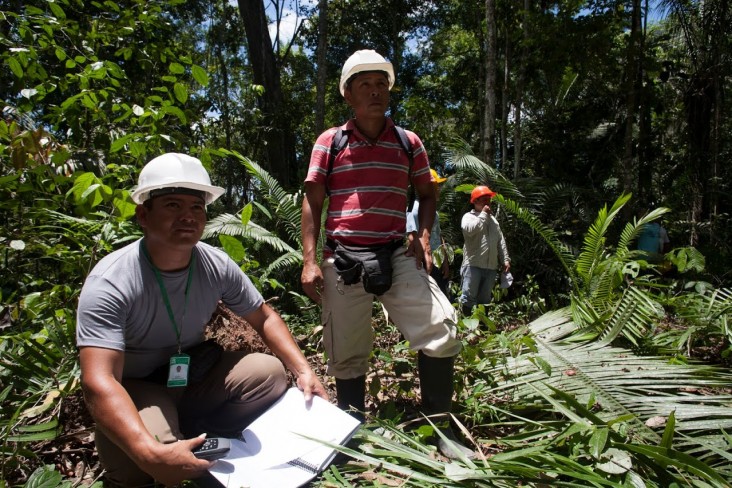
July 2014—Two-thirds of Peru’s territory is covered by forest with potential for permanent forest production. This production, however, is threatened by illegal logging, one of the country’s most significant environmental, economic and social challenges.
Rafael Tananta, forestry overseer for Ucayali’s Sinchi Roca native community, believes working together with stakeholders in the forest sector is key to preventing conflicts that can result from illegal use of forest resources, and can encourage lifestyles based on sustainable use and management of natural resources. He recognizes that his native community has an important role to play in protecting the forest:
“Naturally, by habit and belief, the community takes care of the forest,” says Tananta. “The forest is very important to the community, not only because of its timber, but also because of the animals and medicinal plants. For this reason, we have organized and prepared ourselves; if we do not, we will harm not only ourselves, but the children that are to come.”
The Forestry Oversight initiative promoted by the ORAU indigenous organization and supported by USAID’s Peru Bosques Project, provides native communities and logging companies a framework for negotiating the use of forest resources on community land. Under this initiative, trade agreements between the community and companies operating in the area are governed by standards of profitability and sustainability. This way, both parties benefit and the forest is preserved.
Forestry overseers play an important role in the sustainable use of the forest and in conflict prevention and resolution. “My job as a forestry overseer is to ensure that the trees and seedlings are adequately used. If there are issues, I coordinate with community leadership so that they can speak with the company responsible,” says Tananta.
With support from Peru Bosques and in coordination with ORAU, two decentralized forestry oversight offices have been set up in Ucayali, and 30 forest overseers trained, three of whom are women. In addition, over 1,000 people, 37 percent women, from 20 communities and eight indigenous organizations have been trained on control measures and surveillance for the more than 240,000 hectares of forest that they call home.
The Peru Bosques Project, which runs from July 2011 to July 2016, is designed to achieve a legal and regulatory framework to protect Peru's forest sector, a sustainable conservation of biodiversity in the country’s Amazonian forests, and increased economic opportunities for businesses and native communities that make products from the forests’ natural resources.
Links
Follow @USAIDPeru, on Facebook, on Flickr







Comment
Make a general inquiry or suggest an improvement.